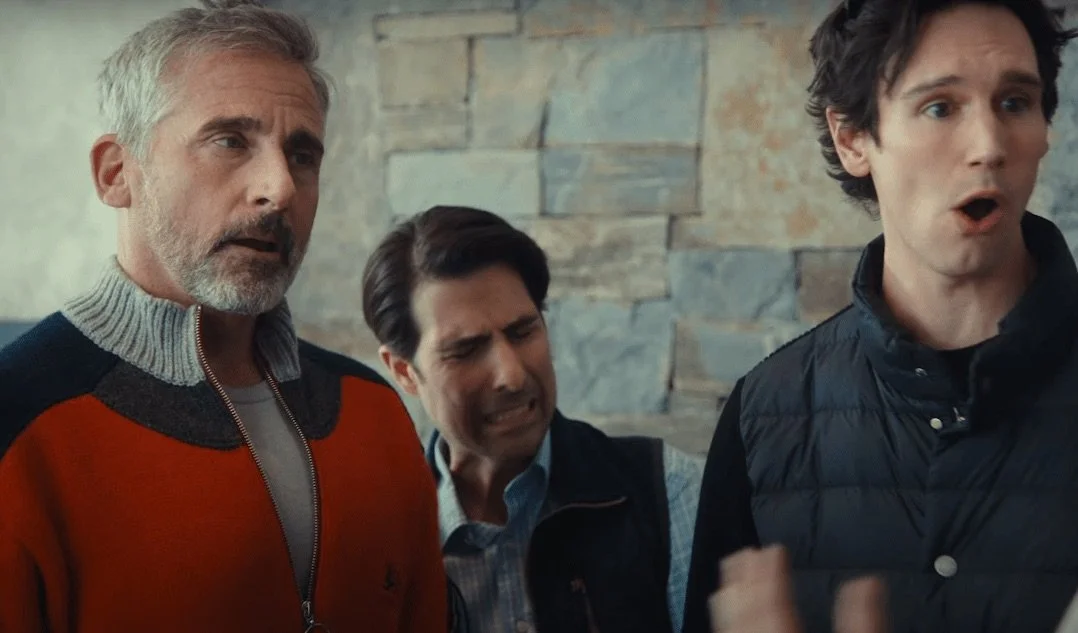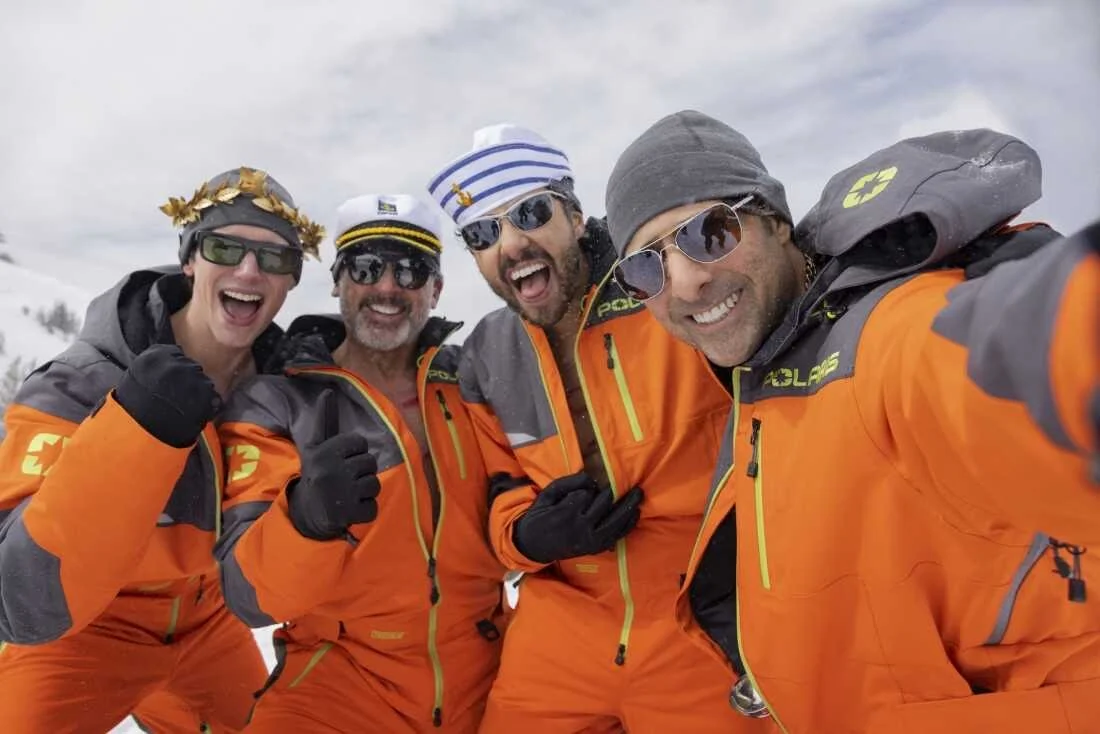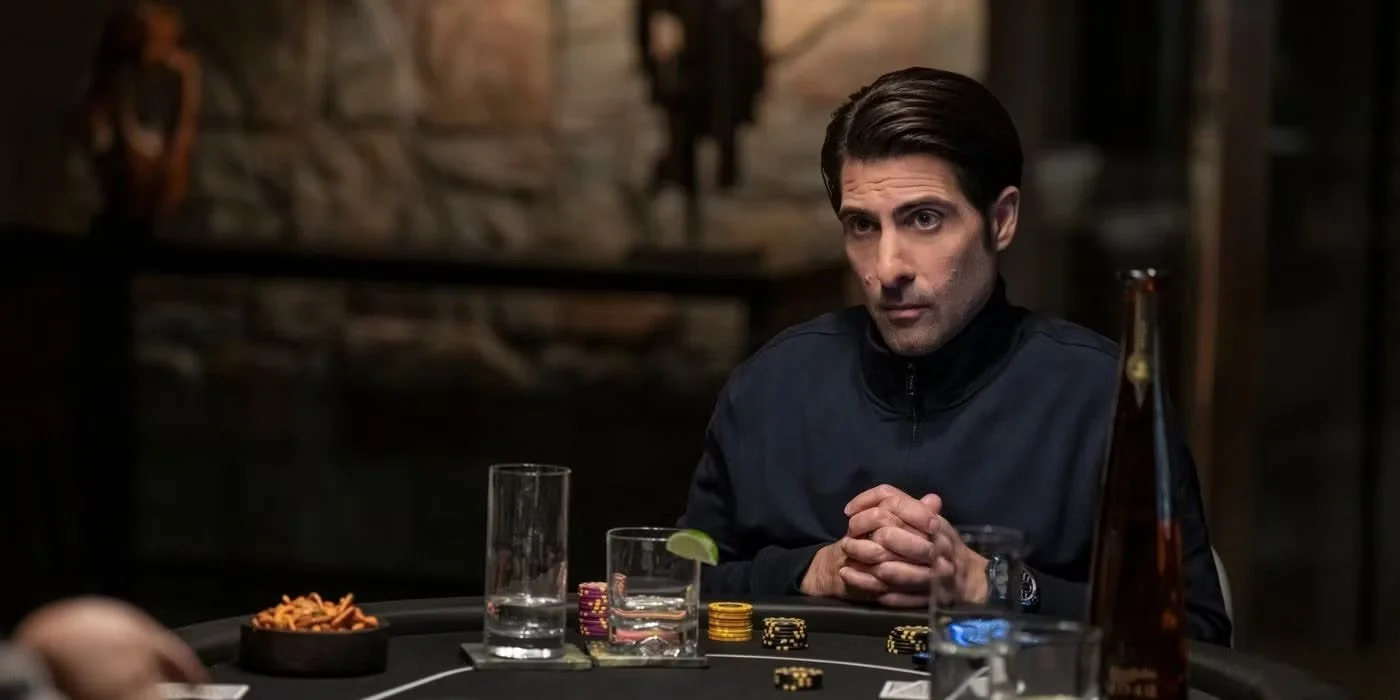'Mountainhead' Review: Jesse Armstrong’s Tech Satire Is Sharp, Cynical, and Sinister
Curtsey of HBO
“If Silicon Valley had a conscience, it would look away.” HBO's 'Mountainhead' is a scalpel-sharp, hallucinogenic takedown of tech hubris — as profound as it is prophetic.
In Jesse Armstrong’s blistering and chaotic directorial debut, Mountainhead, the mastermind behind Succession trades media boardrooms for a snow-draped lodge where the world’s future teeters between tech-fueled delusion and bro-fueled collapse. What results is a cerebral comedy of dystopian manners — a cinematic thought experiment posing as a weekend retreat. The film's title isn't just geographic; it's psychological. These men don’t live at altitude — they exist above it, in ego, capital, and consequence. As the world outside their glass fortress disintegrates under algorithmic manipulation and AI-generated misinformation, Armstrong lets us peer inside a twisted echo chamber of unchecked ambition, where four billionaires believe they're not just spectators to civilization’s fall — they’re its architects.
Apocalypse Now, Bro
Curtsey of HBO
Our quartet of chaos is composed of Venis (Cory Michael Smith), Jeff (Ramy Youssef), Randall (Steve Carell), and Hugo “Soup” Van Yalk (Jason Schwartzman). Each represents a different mutation of tech-age hubris. Venis, the grinning catastrophe, is a shallow futurist whose company’s latest software update has catalyzed global unrest by making deepfakes indistinguishable from reality. Jeff, a meek but brilliant AI engineer, has developed a solution to detect fabricated media, offering the only sliver of redemption. Randall, self-styled as a philosopher-king, confronts mortality with ambitions of transhuman consciousness-uploading. And Soup — poor Soup — is the odd man out: a meditation-app mogul mocked for his relatively modest net worth (a mere half-billion) and desperate for relevance.
What unfolds over one drug-laced, ideologically loaded weekend in a fortress-like lodge known as Mountainhead is a bro-down masquerading as a think tank. They debate philosophy, morality, AI ethics, and global annihilation — often within the same breath. As nations erupt in violence and manipulated chaos, these men drink ayahuasca, wrestle over intellectual property, and muse about societal resets as if they were choosing brunch spots. The cabin becomes both a war room and a womb, where the future is plotted not by
visionaries, but by egos too inflated to fathom their own insignificance.
Succession Unplugged: Armstrong’s New Playground
Curtsey of HBO
In many ways, Mountainhead is Succession on ayahuasca. Gone are the dynastic squabbles and boardroom betrayals. In their place: cold philosophy, hallucinated futures, and existential dread masked as innovation. Armstrong’s writing retains its razor edge — the dialogue sparkles with venom, irony, and insecure brilliance. These men speak in manifesto, tweetstorm, and pitch deck, their words soaked in ego and abstraction. Yet unlike the Roys, whose damage felt earned through seasons of complexity, the Mountainhead ensemble remains perched on their first impressions. They are symbols before they are people — avatars of the ideologies Armstrong wants to deconstruct.
Still, this flattening works in Armstrong’s favor. These men are not intended to grow. They are meant to reflect. Mountainhead doesn’t ask us to empathize with tech’s elite; it demands we recoil from them. It’s a satire where every line of dialogue doubles as a warning shot, every character flaw mirrors a societal fracture.
One Mountain, Four Egos, No Exit
Curtsey of HBO
The film’s claustrophobic setting, shot with icy precision, reinforces its central metaphor: the world is burning, and the architects of that inferno are arguing about interface design in an isolated fortress. Armstrong choreographs their conversations with theatrical precision. Each man is trapped — not just physically, but philosophically. The camera tightens as tensions rise, mimicking the suffocation of unearned authority.
In one standout sequence, Venis delivers a monologue about uploading consciousness to escape human fallibility. He speaks with the fervor of a prophet and the logic of a cult leader. It’s chilling, not because it’s absurd, but because it echoes real-world tech discourse. Another scene sees Randall wax poetic about disruption as divine evolution — until he’s challenged, and his intellect collapses into incoherent defensiveness. Armstrong has seen these men on stage, at conferences, and in press interviews. Here, he dissects them like specimens.
The Cast: Walking Manifestos
Curtsey of HBO
Among the ensemble, Schwartzman steals nearly every scene as Soup, a man so drenched in New Age jargon and secondhand enlightenment that he mistakes desperation for zen. He’s tragic, comic, and unsettling — the beta billionaire too self-aware to be content, but not self-aware enough to change. Carell’s Randall is both hilarious and haunted, masking his fear of death with tech-utopian blather. Smith’s Venis walks a tightrope between charm and madness, a jittery Elon-meets-Joker figure who believes in his own mythology. Youssef’s Jeff, though the moral compass, is underwritten — but perhaps deliberately so. He exists to remind us that even “good” actors in this space are complicit by proximity.
Accelerationism, Inc.
Curtsey of HBO
If Succession was about crumbling legacies, Mountainhead is about weaponized rebirth. These men don’t just anticipate collapse — they crave it. They view catastrophe not as failure, but as an overdue operating system update. The third act, in which the quartet begins to seriously toy with the idea of manufacturing a global “reset,” is the film’s most potent. It’s where Armstrong’s satire curdles into horror. The audience realizes: the greatest threat isn’t that these men will fail. It’s that they might succeed.
Armstrong weaves real-world discourse into his fiction so deftly, it’s hard to distinguish screenplay from transcript. Concepts like accelerationism, transhumanism, and digital resurrection aren’t just buzzwords — they are treated with terrifying reverence. It’s a film that dares to ask what happens when wealth and ideology merge without opposition. When data replaces ethics. When intention
becomes the currency of salvation.
The Edge of Relevance
Curtsey of HBO
Mountainhead feels urgently contemporary. It doesn’t predict the future — it diagnoses the present. In a media ecosystem saturated with biopics and documentaries trying to explain tech moguls, Armstrong opts for a surgical satire that assumes we already know these men. He simply amplifies their worst instincts and lets them echo in a soundproof room.
Where the film occasionally stumbles is in pacing. The single-location format, though thematically appropriate, can at times feel visually inert. Armstrong tries to compensate with dynamic lighting and a chilly score, but the film’s rhythm sometimes dips. The ideas are never dull — but the container occasionally is.
That said, it’s a minor quibble. Mountainhead is one of the sharpest, scariest, and funniest scripts of the year. It’s a film made not to comfort, but to confront. And Armstrong, freed from network constraints and narrative arcs, lets his imagination burn hot and fast.












![Ana de Armas photographed by @matthewsprout for @wwd [2025]
📸: @matthewsprout
ᴡᴀɴᴛ ᴛᴏ ᴊᴏɪɴ ᴛʜᴇ ɢʀᴏᴜᴘ?
ꜰᴏʟʟᴏᴡ 👉🏼 @thecinemagroup](https://images.squarespace-cdn.com/content/v1/65c1a54efb10480185732c60/1752153480237-OJ5W8IXE1T18D7C51RX1/image-asset.jpeg)


